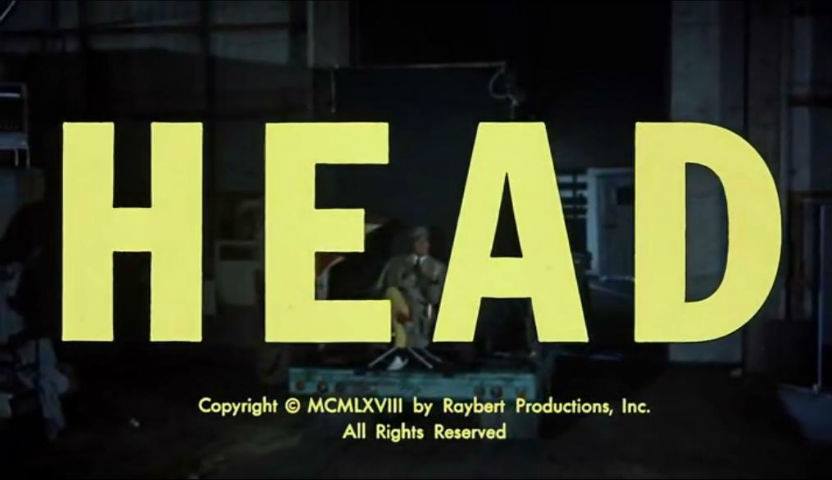
| « | November 2023 | » | ||||
| S | M | T | W | T | F | S |
| 1 | 2 | 3 | 4 | |||
| 5 | 6 | 7 | 8 | 9 | 10 | 11 |
| 12 | 13 | 14 | 15 | 16 | 17 | 18 |
| 19 | 20 | 21 | 22 | 23 | 24 | 25 |
| 26 | 27 | 28 | 29 | 30 | ||

“Here Come The Monkees” (Original Pilot Film) (prod. #4091) first aired @ 7:30 p.m. Eastern on NBC as the 10th episode of The Monkees.
The original sponsor was by Slicker and Black Label by Yardley Of London, and the songs featured were "I Wanna Be Free" and "Let's Dance On", both written by Tommy Boyce & Bobby Hart. This was the series' original pilot film, as well as the only episode of the entire run of the The Monkees television series to feature a Monkees song (Boyce and Hart's "I Wanna Be Free") in two different versions.


"The Wild Monkees" (prod. #4765) first aired @ 7:30 p.m. Eastern on NBC as the 42nd episode of The Monkees.
The week's sponsor was Yardley Of London, and the songs heard were "Star Collector" written by Gerry Goffin & Carole King, and "Goin' Down" written by Diane Hilderbrand, Peter Tork, Michael Nesmith, Micky Dolenz & David Jones. These were the first appearances of both songs on the series.



“The Chaperone” (prod. #4711) first aired @ 7:30 p.m. (EST) on NBC as the 9th episode of The Monkees.
Sponsored by Kellogg's, this episode featured 3 songs: "This Just Doesn't Seem To Be My Day" by Tommy Boyce & Bobby Hart, "Take A Giant Step" by Carole King & Gerry Goffin, and "You Just May Be The One" by Michael Nesmith. And if you were watching this week, the original commercials you would've seen were Kellogg's Sugar Frosted Flakes (:30), Black Label Aftershave by Yardley (:45), Slicker Dolly Kits by Yardley (:15), Kellogg's Corn Flakes (:30), Kellogg's Pop Tarts (:30) and The Monkees for Kellogg's Rice Kirispies (:30).


HEAD (prod. #8888), a motion picture starring that popular TV rockband The Monkees, a theatrical spin-off of their 1966–68 television series and a swan song (series finale), had a World Premiere Engagement at the Studio Cinema and Greenwich Theaters in New York City, just 2 months after the series ended on NBC. A gala was held at the Columbia Pictures studio on West 54th Street attended by The Monkees, Janis Ian, Andy Warhol, Tommy Boyce and Bobby Hart (who didn't contribute any tunes to the film!), Carole Bayer, Lester Sill, Bert Schneider, Bob Rafelson, Peter Fonda, Peter Tork's brother Nick Thorkelson, and his grandmother.
A Raybert Production of A Columbia Pictures Release, directed by The Monkees' TV producer Bob Rafelson (his first film), written and produced by Rafelson and Jack Nicholson, and executive-produced by The Monkees TV series' co-producer Bert Schneider, it featured many movie, sports and TV icons by the likes of Victor Mature, Sonny Liston, Annette Funicello, Carol Doda, Ray Nitschke, and a youthful Teri Garr (billed in the movie as Terry Garr). The songs featured in the movie were "Porpoise Song" by Gerry Goffin & Carole King, "Circle Sky" by Michael Nesmith, "Can You Dig It" and "Long Title: Do I Have To Do This All Over Again" by Peter Tork, "As We Go Along" by Carole King & Toni Stern, and "Daddy's Song" by Nilsson.
Trivia Footnote: The principal photography was a 3-month, 10-day shoot between February and May 1968 at Screen Gems Studios, Paramount Studios and on location in California (Gerald Desmond Bridge, Long Beach; Pasadena Rose Bowl, Pasadena; Playa Del Rey; Bronson Canyon; Palm Springs; Columbia Ranch, Burbank; Grand Olympic Auditorium, Los Angeles), Utah (Valley Music Hall, Salt Lake City), and Paradise Island, The Bahamas.. Unfortunately, a misleading ad campaign (a balding man's face? No indication of the group appearing in the film?) and a mistimed release date, due to a painfully prolonged postproduction process (November 6, 1968? Two months after The Monkees TV show's official cancellation [and the day after Richard M. Nixon defeated Hubert Humphrey in a knockdown, dragout vie for The Presidency!]?) helped sabotage this otherwise fun-loving crowd pleaser, which landed with a tumultuous thud at the box-office with a meager $16,111 in ticket sales. But HEAD has over the years developed quite a cult following among moviegoers and Monkees fans.
